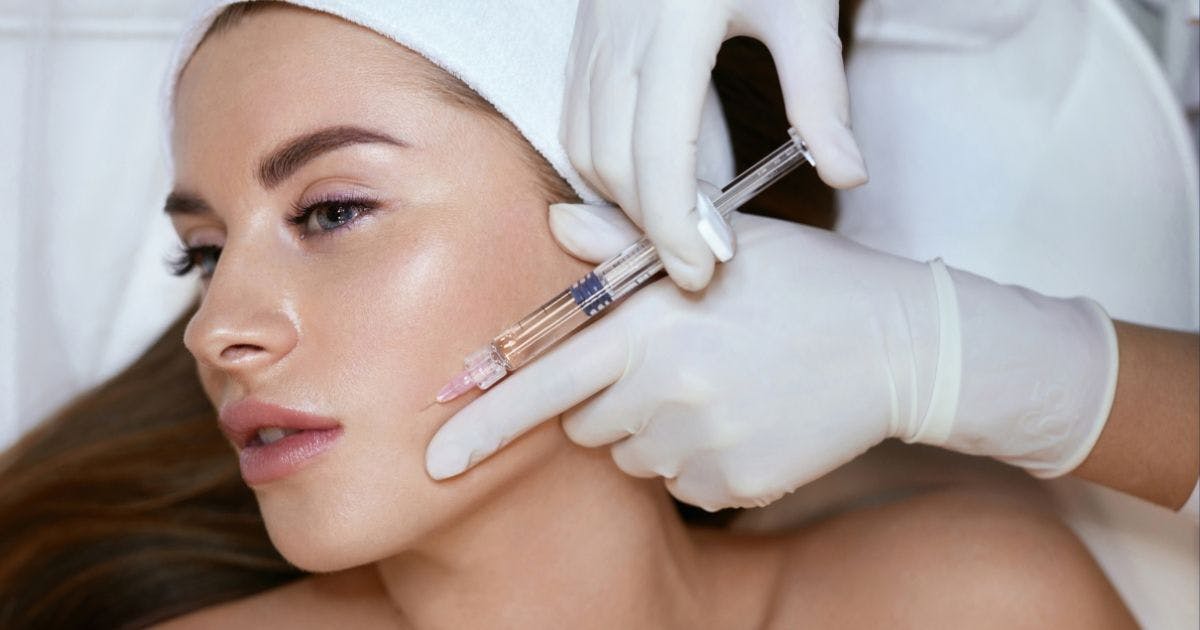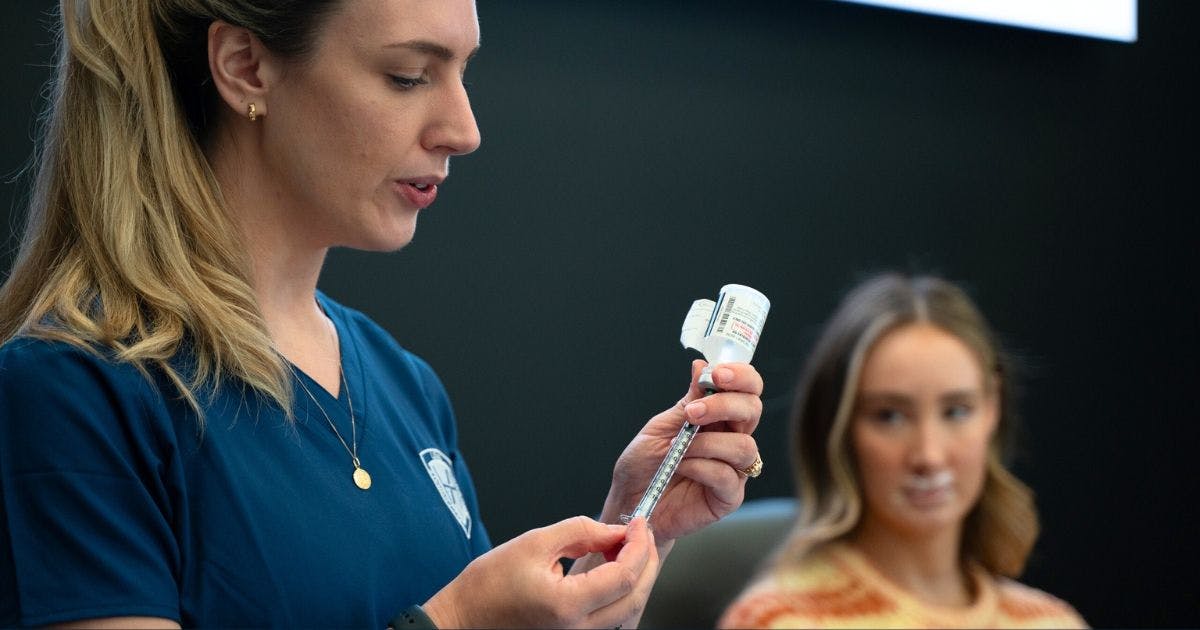Scotland ‘Worst Country in Europe’ for Aesthetics Regulation

According to various media reports, Scotland is the "worst country in Europe" for aesthetics regulation - and England isn’t far behind.
This is due to a total absence of laws governing how cosmetic injectables are administered.
England is currently preparing to implement an aesthetics licensing scheme. Scotland meanwhile has no rules regarding who can practice aesthetic medicine.

“Unqualified beauticians injecting”
A BBC News article, attributes Scotland’s status to swathes of “unqualified beauticians injecting customers with cosmetic treatments.”
In the BBC interview, Jackie Partridge of the British Association of Cosmetic Nurses (BACN) says, “Colleagues across the rest of the world are shocked and in disbelief that non-medically qualified persons are legally allowed to treat the public.
"The UK is a joke when it comes to our colleagues in the rest of the world and Scotland is the worst in the UK."
This lack of regulation surrounding who can administer non-surgical cosmetic injectables certainly also applies to England.
One of the key differences between Scottish and English aesthetics regulation relates to patient ages.
No minimum age requirement for botox and filler patients
There is currently no minimum age requirement for cosmetic botox and filler patients in Scotland. As a result, the article claims that children are receiving injectables.
Although England is notoriously under-regulated in the aesthetics sector, there is a minimum age requirement for patients. In England it's illegal to see patients under 18 years of age for cosmetic injectables such as botox and fillers. This includes offering them a consultation, not just the treatment itself.
Under-age patients travelling to Scotland for treatment
One consequence of Scotland having such lax patient criteria is tweakment tourism. It's reported that teenagers from the north of England are crossing the border and receiving aesthetics treatments in Scotland.
The rising demand from these age groups is widely attributed to social media use and the prevalence of filters.
Public Health Minister for Scotland, Jenni Minto is quoted by the BBC as saying: “We’ve got to look very carefully at age because of course in Scotland we give 16-year-olds the vote, and I think that’s important that we take into account different characteristics in different age groups.”
She added that there are currently no timelines for introducing mandatory aesthetics regulation to Scotland.

Advertising aesthetics procedures
The Committees of Advertising Practice (CAP) sets the rules for advertising in the UK. These regulations are then enforced by the Advertising Standards Authority (ASA).
Social media is a difficult beast to tame given its worldwide reach. There are a number of mandatory rules regarding what can and cannot be advertised when it comes to cosmetic injectables, though.
Many of these rules relate to the promotion of prescription only medications, for example botulinum toxin or hyaluronidase treatments.
You can read more about this in our previous article, How Can You Advertise Toxin Treatments Legally in the UK?
Despite the fact these rules exist, and ASA crackdowns on offenders, advertising malpractice is rife in the aesthetics industry.
New aesthetics practitioners see local injectors advertising botox on their Instagram and want to compete. You may be tempted to also run discounts or other incentives to entice treatment sales. This, however, contravenes laws regarding the promotion of prescription medications.
There are many other, more ethical ways to promote your services though, which aren’t as risky.
New aesthetics licensing for England may influence rest of UK
England has now completed the first step toward regulating non-surgical cosmetic procedures. The aesthetics licensing ball is officially rolling!
Various groups involved have expressed hope that the final English model may influence regulation across the UK.
England is introducing a new aesthetics licensing scheme for practitioners
As many of you will know, we're closely monitoring the situation regarding the government’s planned aesthetics licensing scheme for England. This involves all aesthetics practitioners being legally required to have a licence to practice and a separate licence for their premises.
There are multiple steps before any licensing scheme can be rolled out by the Department of Health & Social Care (DHSC):
- Looking at the different areas involved in regulation separately
- DHSC releasing its proposals for consideration by the industry and wider public
- Consultation periods during which anyone is welcome to feedback on these proposals
- A review of the consultation responses
- DHSC providing updates on the outcome.
The first DHSC proposal was published in 2023. It involved the introduction of a traffic light, or RAG-rating, system for aesthetics procedures. These were categorised based on the risk to public safety.
It also touched on issues such as who may be permitted to administer treatments in each of the red, amber and green categories. One of the most controversial proposals outlined in the first consultation paper was the idea of ‘supervision’ being introduced.
This initial consultation received over 11,800 responses. An update on the outcomes is expected in April 2024. The following consultation paper is likely to cover another set of considerations. We hope that this includes a minimum level of education, or specific qualifications, for all aesthetics practitioners.
Scotland “engaging with stakeholders”
The BBC writes that a ‘Scottish government spokesperson’ said: “We remain focussed on engaging with stakeholders on the development of future regulation, to ensure that all non-surgical cosmetic procedures carried out in Scotland are delivered from hygienic premises by appropriately trained practitioners, applying recognised standards and using regulated products.”
Jenni Minto also told the reporter that she “wouldn’t want to pre-empt anything” when asked if non-medics may be banned from providing botox and filler treatments. She added, “I think it’s fair to say that we will look at training, we’ll look at the premises as well, and we’ll look at age. But nothing is off the table.”

Minimum standard of aesthetics training for all practitoners
One aspect brought up regularly over the years is the need for a minimum standard of aesthetics training for all practitioners.
This is a move we welcome and, indeed, echoes our ethos. We built Harley Academy around the Level 7 qualification in injectables, originated by our founder, Dr Tristan Mehta.
Like many, we are waiting to hear from the DHSC exactly this standard will be. However, we want healthcare professionals considering a career in aesthetic medicine now to have some reassurance.
Where the Level 7 in injectables comes in
Our Level 7 Diploma in Botox & Dermal Fillers course is mapped to the Health Education England guidelines for aesthetic medicine training. This is the framework the government currently has in place.
It is also approved by the Joint Council for Cosmetic Practitioners (JCCP) - as is Harley Academy - and regulated by OfQual.
Additionally, since its inception, we've worked hard on ensuring we optimise our Level 7 aesthetics training delivery. It provides the most hands-on, confidence-boosting clinical experience with rigorous theoretical knowledge. A large part of this revolves around our one-to-one mentoring during this postgraduate level course.
This offers a unique experience for our Level 7 trainees. Each works in a real, working aesthetics clinic environment at our City of London locations. We provide the patients then each trainee treats their own individual patients, from consultation to treatment and aftercare advice, exactly as they would in their own practice. The only difference is the presence and guidance of their experienced mentor who supports them throughout each appointment.
The leading Level 7 aesthetics qualification
As the leading provider of aesthetics training in the UK, with the largest number of graduates, we treat over 1,000 patients per month. We have seen every possible scenario and pass this knowledge on to our trainees.
We are so committed to ensuring our Level 7 botox and filler courses - classic, Fast Track and Combined - are the best available.
For more information, call our support consultants who can discuss this and any other queries you have about finding the best aesthetics course for your needs.
Want to share your thoughts on the state of aesthetics licensing in England, Scotland or the UK generally? Head to the Harley Academy Instagram account and leave us a comment.
All information correct at the time of publication
Download our full prospectus
Browse all our injectables, dermal fillers and cosmetic dermatology courses in one document
By submitting this form, you agree to receive marketing about our products, events, promotions and exclusive content. Consent is not a condition of purchase, and no purchase is necessary. Message frequency varies. View our Privacy Policy and Terms & Conditions
Attend our FREE open evening
If you're not sure which course is right for you, let us help
Join us online or in-person at our free open evening to learn more
Our Partners














STAY INFORMED
Sign up to receive industry news, careers advice, special offers and information on Harley Academy courses and services

